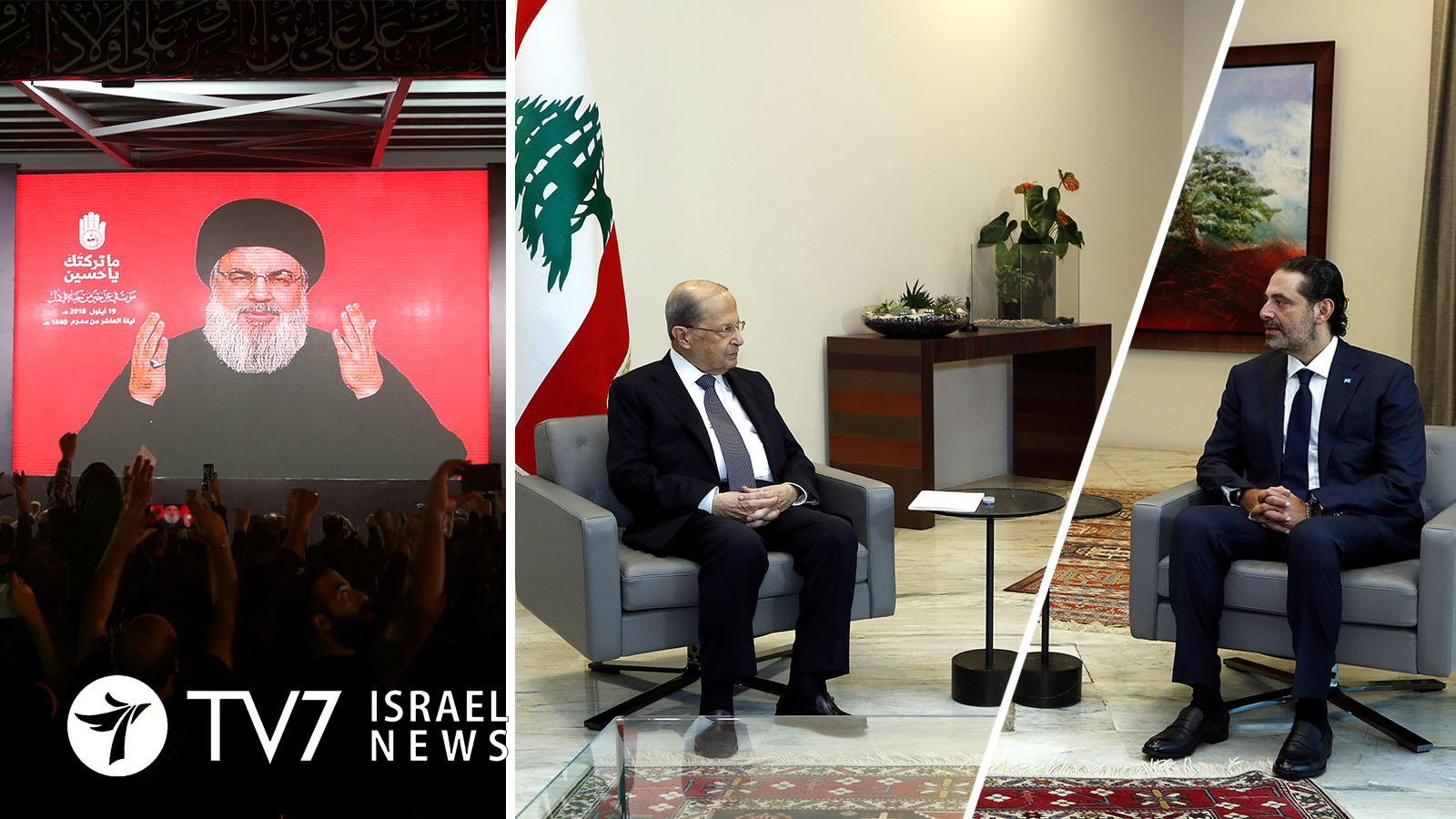Hezbollah is pushing for the formation of a new cabinet in Lebanon to handle the financial crisis, after the further deterioration of a standoff over government formation between President Michel Aoun and Prime Minister-Designate Saad al-Hariri.
Aoun is closely allied with the Iran-backed Hezbollah terror group, which is both a paramilitary force and a political party. Hezbollah Secretary General Sheikh Hassan Nasrallah has said he would support a cabinet of specialists if Aoun is able to come to an agreement with Hariri.
“Government formation is the only alternative to the chaos that threatens everyone,” the Hezbollah parliamentary bloc said in a statement.
Hariri, who was appointed premier in October 2020, has been at loggerheads with Aoun for months of political wrangling. Their dispute intensified after yesterday’s meeting on the formation of a new technocratic cabinet ended in a public repudiation.
The Prime Minister-Designate blamed the failure to reach an agreement on Aoun’s demand for a blocking majority in government for his political allies, including Hezbollah. He revealed that the President had “unfortunately” sent him “a full list” of ministries divided according to “different sects and political parties,” along with instructions to fill in the names of the appointees.
“This is unacceptable because it is not the job of the Prime Minister-Designate to fill forms from someone else or from the president to form a government; and second, because our constitution says clearly that the Prime Minister-Designate should form the government and choose the names and he discusses the formation with the president.”
In a televised speech last night, Aoun called on Hariri to either form a new government immediately or step aside to make way for someone else. Hariri hit back by telling the President to call an election if he was unable to approve the cabinet line-up.
Following yet another meeting with Aoun today, Hariri told reporters that “The main priority of any government is to prevent the collapse that we are facing today… that we proceed to start halting the collapse with the IMF and regain the trust of the international community.”
Lebanon’s talks with the International Monetary Fund (IMF) stalled last year due to a dispute between government officials, bankers and political parties over vast financial losses.
The country’s top Christian cleric also today repeated calls for politicians to rise above disagreements. “We are determined in our path to save Lebanon and the Lebanese,” Maronite Patriarch Bechara Boutros Al-Rai said.
The United States Ambassador today joined a chorus of foreign officials urging fractious leaders to set aside their differences to rescue the country from biggest threat to Lebanon’s stability since the 1975-1990 civil war.
“Now that we are almost eight months without a fully-empowered government, isn’t now the time to let go of those demands? To begin compromising?” US Ambassador Dorothy Shea said after meeting with President Aoun.
The outgoing cabinet has stayed on in a caretaker capacity since resigning en masse in August 2020 in the wake of a devastating explosion in the Beirut Port that killed 200 people and destroyed swathes of the city.
“Right now, there is a need for courageous leaders, who are ready to put aside their partisan differences and work together to rescue the country from the multiple crises and self-inflected wounds it is facing,” Shea said.
The pace of the financial crisis has quickened in the past few weeks, with the Lebanese pound losing nearly 90% of its value, protesters blocking roads and shops closing down.
Ahead of an informal meeting of European Union Foreign Ministers in Brussels yesterday, top French diplomat Jean-Yves Le Drian called for intervention in Lebanon’s impasse. “It’s blocked because of particular interest, because political authorities are unable to initiate the (political reform) process,” he said, underscoring that, “Europe cannot look away from this crisis. When a country collapses, Europe must be ready.”
High Representative of the 27-member bloc Josep Borrell later said that further deliberations on Lebanon will be held during the 2-day EU Commission leadership summit that opened today. “Lebanon is falling apart. Economically-speaking the crisis is gigantic, the financial situation is deteriorating,” said the EU Foreign Policy Chief.
“This is not the moment to continue quarrelling politically and we will continue putting pressure on the political parties to make their behavior change. And if it does not change we will have to [see] what to do. The Foreign Affairs Minister of France has been asking us, the External Action Service, to present a new report, explaining what else can be done, apart from putting political pressure,” added Borrell, stressing, “Because certainly the situation in Lebanon is – not bad, worse. And every day it is becoming worse. The country can fall apart, and it is our responsibility to try to prevent it from happening.”
